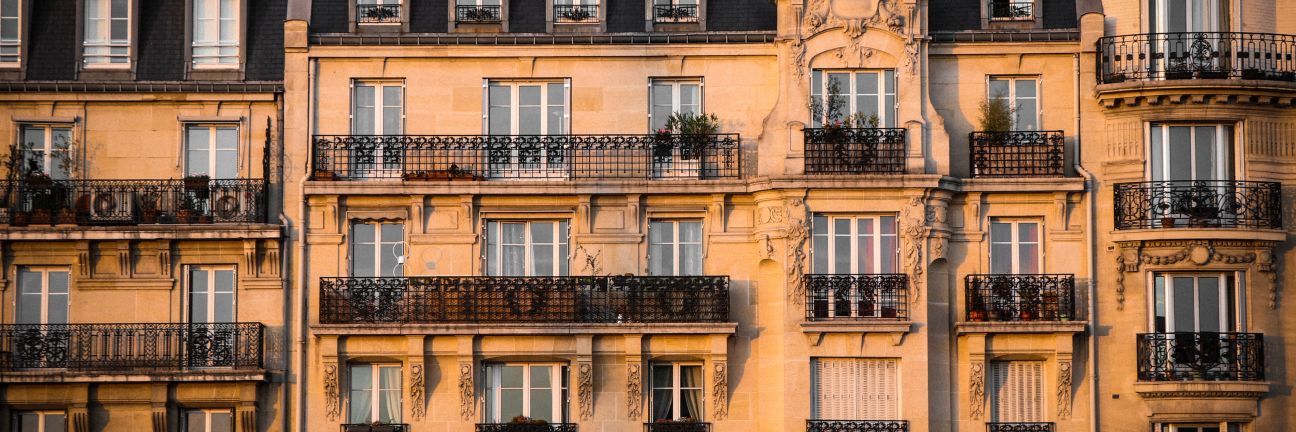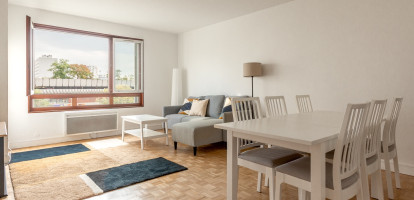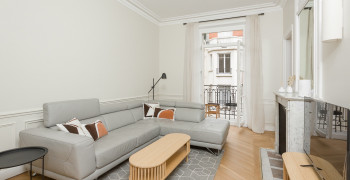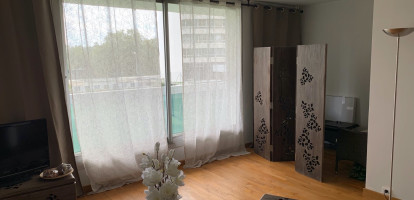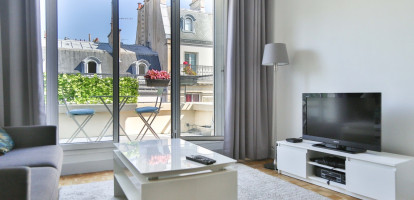Pros and cons
First and foremost, buying an old or new property is a matter of personal taste. Then, it comes to reflect upon the pros and cons. Price, taxation, guarantees, and charges differ, so it is better to objectively assess these parameters and base one's buying decision on full knowledge of the facts.
First, here is how new and old properties are defined:
- Old Property: This property has already been transferred by its first owner, either by a sale, donation, or inheritance.
- New Property: This property has been built for a maximum of five years, has never been sold by its first owner and has never been inhabited. Often, new properties are for sale in a state of future completion (Véfa in French). Other options exist, such as buying a newly finished home or building a house.
The price
The difference in price per square meter between new and old property is around 15 to 20% depending on the city. Old real estate's worth, including acquisition costs, is usually lower than new real estate, except for old prestigious buildings. Hence, notary fees for new purchases are lower.
Taxation linked to the purchase and after
Old properties sell under a tax regime of 5.80% of the total property price. Besides, the buyer of old real estate does not benefit from an annual property tax exemption.
New housing sells under the VAT system (20% or 5.5% for real estate programs located in priority areas of the city).
The buyers are exempt from property tax (excluding the household waste tax's part) during the first two years after buying a new property.
Notary fees
Old property: The notary's fee adds to the transfer tax duties, which amounts to 5.80% of the property value. In total, 7 to 8% of the property cost will add to the final purchase price.
New property: In return for a high VAT, the transfer tax duties are low and vary from 2 to 3% of the real estate purchase value. If the owner of land builds a home, transfer taxes will also apply to the ground.
The transfer tax duties are paid during the signature of the authentic deed at the notary. Also, individuals have to cover the tax and notary expenses themselves, for banks do not grant loans for incidental costs to the purchase.
Availability and functionality
Old property: Old properties' offer is more significant than new properties', especially if the buyer wishes to settle in the city center. In addition, it is easier to arrange moving-in with old properties because the purchaser gets the keys three months after signing the sale agreement when signing the deed of sale at the notary.
On the other hand, old properties usually require necessary renovation work. In France, renovation aids are available if needed.
New property: The purchaser will probably need to be very patient about moving into their new property. First, it is necessary to wait for the achievement of the construction work, which can last eighteen months or even more in case of delays.
However, today's new homes meet modern standards. Therefore, the future housing will be functional and comfortable, with no renovation work to plan anytime soon.
Guarantees
Old property. To protect the purchaser from hidden defects, he benefits from a "guarantee of delivery." The property is claimed to have no hidden defects, and the ownership of the property is transferred. In addition, the seller must submit a technical diagnosis file before the sale.
The ten-year Guarantee covers all damages occurring from a faulty structure unfit for its intended purpose. If the buyer purchases a home that is less than ten years old, they get the remaining time of ten-year Guarantee.
New property. The future owner benefits from several legal guarantees. The constructor's Damage Insurance is valid for two years in case of a problem with the building or the equipment.
The ten-year Guarantee intervenes when poor crafting affects the construction's durability. For an unbuilt property, the promoter guarantees the property on behalf of the buyer and will be responsible for any default for ten years.
The completion or refund guarantee protects the off-plan buyer. If the promoter abandons the project before starting construction, the buyer will be reimbursed the sums paid (usually a security deposit of 5% of the purchasing price). If the work has started and the developer defaults, his insurer will cover the construction until delivery. If the purchaser participates in the construction program and signs a construction contract under the "1990 construction law", he will benefit from a delivery guarantee at the agreed price and time.
Other protections are available, such as the Guarantee of perfect completion, which covers the damages or disorders reported during the reception and those reported in the year following the reception. Also, the Guarantee covers all dysfunctioning equipment in the building, such as shutters, radiators, etc.) for two years.
Energy saving
Old property is rarely up to the energetic standards at purchase. Therefore, the buyer has to invest in insulation and renovation work and provide budgetary leeway to meet these expenses.
If the buyer purchases the property for rental investment, he needs to consider the future ban on rentals of thermal sieves.
New properties are built with current ecological standards, and they have excellent energy performance. As a result, the buyers will save a lot of money on their heating and air conditioning bills. In addition, there will be no renovation work to be expected for the next ten years or more.
Aid for the purchase of a real estate
For the old property, aids from the State are provided for carrying out the renovation projects. The zero rate loan (PTZ) is available if the renovation represents at least 25% of the loan. France Rénov' has also set up aid for improving energy efficiency.
There are numerous aids available for acquiring new housing. The aid from local authorities is combined with the State's and is subject to test. Intended for the purchase of one's first primary residence, the zero rate loan (PTZ) makes it possible to finance up to 40% of the cost of the operation. Finally, the Pinel law is attractive for investors who plan on a rental project.
All in all, once future buyers are done with calculations and comparisons of old versus new property- they only have to follow their reason, unless the "coup de foudre" for a property strikes!
Editor: Claire de Circourt
Sources: Consortium immobilier, La Française immobilière, MAIF
Credits photo@Jeana Bala
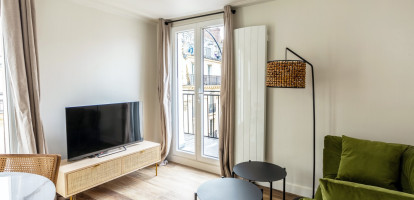


 Français
Français
